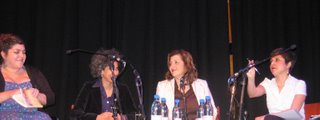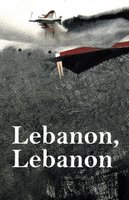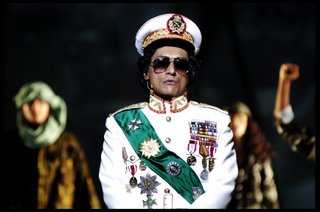British Muslims, five years on from 9/11
In the five years since the terror attacks in the US on 9 September 2001 – and particularly following the suicide bombings in London on 7 July last year – British Muslims have been under coming under increasing pressure and, sometimes, suspicion. At the same time, they have become more assertive and organised, and are exploring questions concerning their place in British and European society.
The British Muslim community is estimated at between 1.6 million and 2 million people, and is very diverse. The majority are from Pakistan and the rest of the Indian sub-continent, but there are substantial numbers from Arab and other Middle Eastern countries and elsewhere.
In the attacks on the London transport system on 7 July last year, four suicide bombers killed themselves and 52 other people. Unlike the 9/11 attacks, these attacks were carried out by Muslims who were born in the country they were attacking. A shocked Britain asked itself: how is it that young British-born Muslims have become so radicalised that they are prepared to kill themselves and large numbers of their fellow citizens?
Two weeks after the 7/7 attacks there were failed attempts to carry out four more suicide bombings in London. Government officials and the police frequently warn that further terror attacks in Britain are inevitable.
The US magazine The New Republic even claimed recently that Britain now presents a greater security threat to the US than do Iraq or Iran because its Muslim communities are a breeding ground for violent extremism. The magazine said that after the latest security alerts and arrests it can be argued “that the biggest threat to US security emanates not from Iran, or Iraq or Afghanistan, but from Great Britain, our closest ally.”
The government has introduced increasingly stringent anti-terror legislation since 9/11, aimed mainly at Islamic radicals. Ordinary Muslims feel the new laws and powers are disproportionately used against them, and human rights activists, the legal profession and many politicians are alarmed at the curbs on individual freedoms in the name of security. There have been some cases of wrongful arrests of Muslims, including two brothers suspected of being suicide bombers who were arrested by 200 officers in Forest Gate, East London, in June. One brother was shot in the shoulder during the arrest, but no evidence was found against the two.
Almost every day brings news of security alerts, plots or arrests. On August 10 the Home Secretary John Reid announced that a plot to blow up a number of aircraft travelling from the UK to the US had been disrupted. By September 7, 17 Muslims had been charged in relation to the alleged planned attacks. They included recent British converts to Islam.
In a separate case, police arrested 14 people on September 1 in raids on a Chinese restaurant in London and other addresses. They searched an Islamic school in the county of East Sussex, which they suspected might have been used for the training of Islamic militants.
Peter Clarke, head of the Metropolitan Police’s anti-terror branch, says that police are currently monitoring “thousands” of British Muslims on suspicion that they are involved in terrorism. Some British Muslims have gone to fight in Iraq, where a few are known to have become suicide bombers. The intelligence services and police worry about the security threat those radicals who return from Iraq may pose in the future.
Prime Minister Tony Blair and members of his cabinet repeatedly insist that the terror attacks and the threat from Islamic extremists has nothing to do with foreign policy, including the war on Iraq. Instead, they blame a historic struggle within Islam, and a battle with Western “values”.
These denials of a link between foreign policy issues and security threats have little credibility. British foreign policy in Palestine, Afghanistan, Iraq and now Lebanon, and Blair’s close adherence to the policies of US president George Bush, is fuelling Muslim anger.
In a most unwelcome development for the government, on August 12 three Muslim Labour MPs, three Muslim members of the House of Lords, and 38 Muslim groups signed an open letter to Blair calling for “urgent” changes in UK foreign policy to show that the UK values the lives of civilians.
The signatories of the letter warned that British policy is putting civilians at increased risk in the UK and abroad. It pointed to the “debacle” of Iraq, and the UK’s stance over the Middle East crisis. Sadiq Khan, a Labour MP who signed the letter, said British foreign policy is seen by many British Muslims as unfair and unjust. “Whether we like it or not, such a sense of injustice plays into the hands of extremists.”
Home Secretary John Reid was furious about the letter, describing it as a “terrible misjudgement”. He insisted that no competent government would remain in power if policies were “dictated by terrorists.”
The terror attacks in London and the perceived threats from Islamic extremism have thrown into doubt the concept of multiculturalism, which was for decades the basis of British government policies towards ethnic communities.
An opinion poll conducted by the Pew organisation found Muslims in Britain to be the most anti-Western in Europe. It is increasingly argued that multiculturalism has encouraged a dangerous separateness of communities, and there is a new emphasis on the need for a shared sense of “Britishness”.
Ruth Kelly, the Secretary of State for Communities and Local Government, has called for a “new, honest debate” about rooting out extremism, and said it is “not racist” to discuss immigration and political asylum.
There are deep divisions within the British “talking classes” over Islamic radicalism. Melanie Phillips, a pro- Israeli author, newspaper columnist and broadcaster, has written a book entitled: “Londonistan: How Britain is Creating a Terror State Within”. Phillips claims that “under the noses of the British government, parliament, intelligence services and police, Britain has become the European hub for the promotion, recruitment and financing of Islamist terror and extremism.”
Phillips’ views are echoed by some other influential figures in the British media and political establishment. Such people used the term “Islamofascism” years before US President George W Bush uttered the word in a speech.
There has been a campaign in some quarters against the Muslim Council of Britain, the umbrella organisation of 400 Muslim mosques and organisations founded in 1997. One reason is its refusal to attend the annual Holocaust Memorial Day, which was introduced by Tony Blair’s government. The Council explains this is not to dismiss the Holocaust, but because it believes all genocides, and not only the Holocaust, should be commemorated by such a day.
The political editor of the liberal weekly magazine New Statesman Martin Bright has written and broadcast criticisms of the MCB, saying it has links with the Muslim Brotherhood. He presented a Channel 4 TV programme in July on the alleged “love affair” between the British government and radical Islam.
Martin Bright and others have also targeted Egyptian cleric Sheikh Yusuf Qaradawi. Qaradawi has been encouraged by the British government, which regards him as a moderate. His critics claim some of his opinions, including his support for Palestinian suicide bombers, mean he is not moderate.
There has been some criticism of the alliance between the British left, particularly the Socialist Workers party, and Muslim groups such as the Muslim Association of Britain, in for example setting up the Stop the War Coalition which organises demonstrations and other activities against the Iraq war. In addition the Respect Party founded by MP George Galloway, after he was kicked out of the Labour party for comments he made about the Iraq war, has a strong Muslim component.
After the attacks of July 7, the government made some efforts to publicly engage the Muslim community, by inviting is leaders to Downing Street for talks and setting up a task force. This Muslim task force made 64 recommendations, but the government has in practice adopted very few of them.
There have been efforts recently to encourage new bodies as a so-called “moderate” counter to the Muslim Council of Britain. One of these bodies is the Sufi Muslim Council, which was launched in mid-July at a reception in the House of Commons, attended by Ruth Kelly. Leaders of this group claim to represent a “silent majority” frustrated with slow progress since the 7/7 bombings.
The group has formed a partnership with the British Muslim Forum, which represents 300 mosques in central and northern England. The British Muslim Forum helped set up the Mosques & Imams National Advisory Board launched this year to improve standards at British mosques.
Susannah Tarbushpublished in Arabic translation in Al-Hayat newspaper 12 September 2006
 The latest issue of Banipal, the London-based magazine of modern Arab literature, focuses particularly on work by Egyptian and Iraqi authors, with features presenting work by writers from those two countries. But the issue also includes plenty of material by, or about, writers from other Arab countries.
The latest issue of Banipal, the London-based magazine of modern Arab literature, focuses particularly on work by Egyptian and Iraqi authors, with features presenting work by writers from those two countries. But the issue also includes plenty of material by, or about, writers from other Arab countries.







